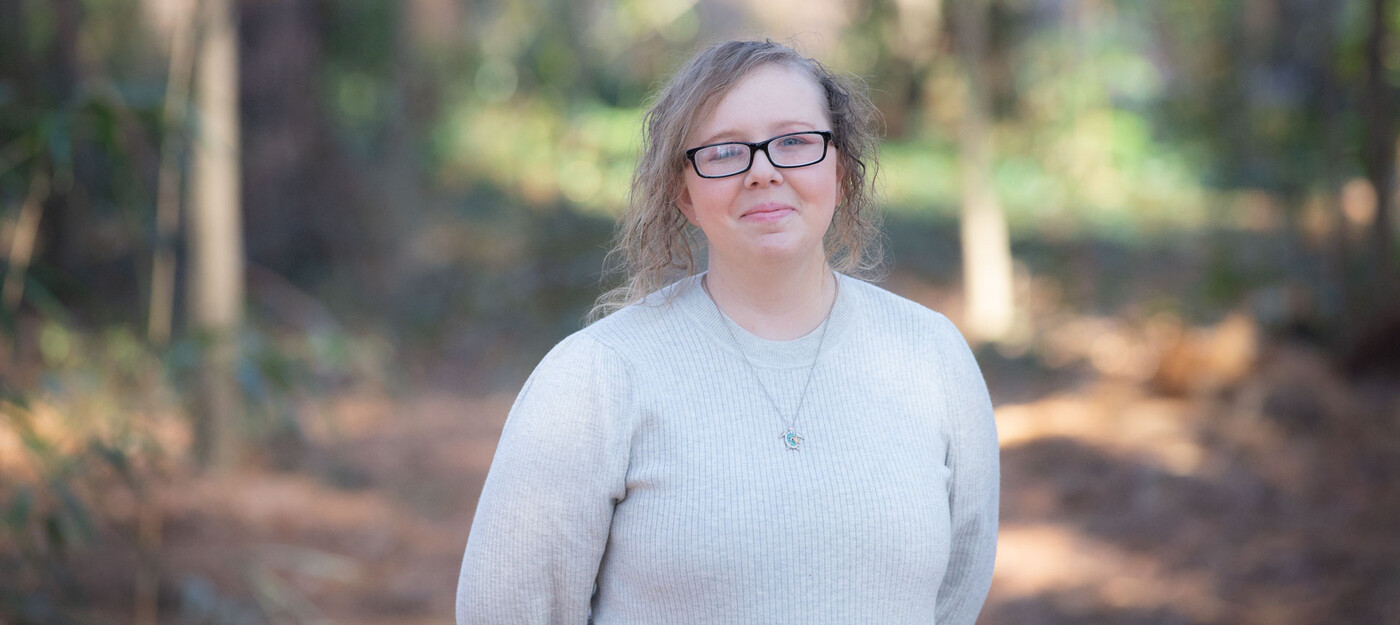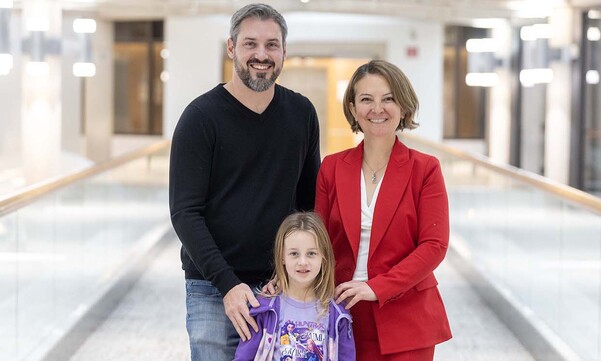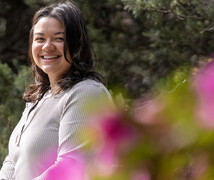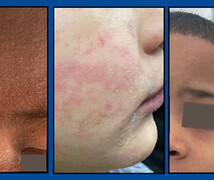For Shelby Black, 2021 was a year for anniversaries. The California native celebrated her first year living in the Triangle. She marked a significant personal health milestone -- nine years in remission from brain cancer. And she began her second year of participating in Bobby's Coaches, Duke's peer support program for young adults with a cancer diagnosis and their parent caregiver.
Creating Connections
“I've made leaps and bounds since joining Bobby's Coaches in June 2020," Black said. “My coach understands what I am going through when no one else does. My feelings and reactions feel validated. I feel like I can be myself."
That comes from having a support network through Bobby's Coaches. The program offers Black a way to talk about friendships, dating, and life goals in education and work with a person who has a unique understanding of what it's like dealing with cancer. "You can talk with someone that understands in a way that most people can't -- even doctors," she said.
A Lasting Impression
Bobby's Coaches is named after Bobby Menges, a Duke University student who channeled his own cancer diagnosis into fundraising and mentoring college students with a chronic illness before he passed away in 2018. Sam Brotkin, a graduate student in Duke's clinical psychology program, had the privilege of seeing the effects Menges had on fellow patients.
“When Bobby walked into a room, you felt like you could do anything," Brotkin said. “Bobby's Coaches strive to continue in this spirit – to meet cancer patients where they are and support them in navigating what comes next."
While Menges was battling cancer, he remarked on the lack of support for patients like himself who were too old to consider themselves a part of the pediatric population, and too young for the geriatric age group. Bobby's Coaches is a free program for young adults ages 18-29 and only requires a referral from a Duke provider.
“Having cancer at this age disrupts the transition to adulthood," said Gary Maslow, MD, MPH, co-chief of Duke's Division of Child & Family Mental Health & Community Psychiatry. “This is a vulnerable psychosocial time. But our patients are strong and we're helping them help each other."
Finding a New Outlook
Cat Wood is one of Bobby's Coaches. Having been diagnosed with Hodgkin's Lymphoma in 2018 and 2019, she wanted to give back.
“This experience has given me a greater sense of purpose and taught me a lot about human nature," Wood said. “I try to walk alongside the people I am coaching. And they are often very receptive. They say, 'I know you get this because you've had cancer.'"
Coaches like Wood undergo a virtual training with a focus on active listening and are considered part-time Duke staff, said McLean Pollock, PhD, an assistant professor in the Division of Child & Family Mental Health & Community Psychiatry. Bobby's Coaches is a program within the division and is supported by the I'm Not Done Yet Foundation. Pollock estimates 20 patients have participated in the peer coaching model thus far.
“I’ve always been a big advocate for myself, but this has helped with that strength,” Black said. “I don’t think I’d be the same person if I didn’t go through this cancer and then have this connection. It’s helped me grow as a person.”




